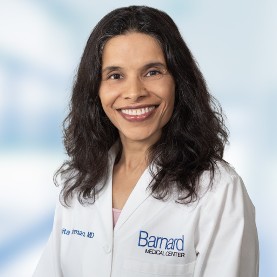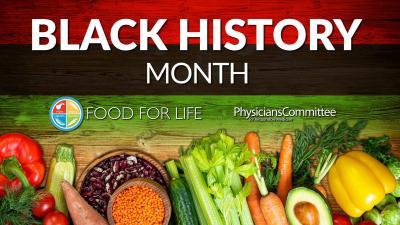A New Year’s Resolution for Medical Providers

As the calendar resets, a new Physicians Committee for Responsible Medicine/Morning Consult survey shows nearly half of U.S. adults have resolved to start a new diet this year. Unfortunately, just 7% say they’ll try a plant-based diet, which is one of the most effective for sustained weight loss and disease prevention. Instead, those polled say they’ll attempt to eat fewer calories or go on a low-carbohydrate diet, such as keto, Atkins, or South Beach.
Also concerning are new obesity statistics. Data shows that in 23 states, more than 1 in 3 adults is obese. And across the country, 3 out of 4 adults are obese or overweight.
As physicians, we have a responsibility to steer our patients away from fad diets and toward an evidence-backed way of eating that’s not intended as a temporary quick fix, but rather a lifestyle that will not only help them shed excess pounds, but reverse or prevent diabetes, hypertension, cardiovascular disease, and more.
Research has consistently shown a plant-based diet works.
For example, in the Physicians Committee’s 2013 GEICO study of 292 obese or overweight GEICO employees with a diagnosis of type 2 diabetes at 10 sites across the United States, participants followed either a low-fat vegan diet or no diet for 18 weeks. Those on the vegan diet lost an average of 9.5 pounds, significantly decreased total and LDL cholesterol, and, in individuals with diabetes, decreased hemoglobin A1c by an average of 0.7 percentage points.
In another Physicians Committee study, from 2018, overweight individuals who followed a plant-based diet for 16 weeks lost 14.3 pounds, on average, while individuals in a control group experienced no significant change in weight.
As a physician, I understand it’s a challenge to find time to counsel patients on lifestyle modifications, but we must bridge the gap between this kind of clinical research and patient care.
Unfortunately, most New Year’s resolutions fail. A 2023 Forbes poll found that 44% of resolutions last just two to three months, and only 6% last beyond a year.
The truth is, sustainable weight loss isn’t about willpower; it’s about understanding one’s own body, mindset, and habits.
At the Barnard Medical Clinic in Washington, D.C., we encourage patients to start with a small goal and keep it simple. We ask them to try a plant-based diet for 30 days, focusing on minimally processed plant foods, avoiding animal products, limiting saturated fats, and minimizing the use of cooking oils.
These core principles support weight loss by maximizing nutrient density while reducing calorie density. This means patients enjoy food without counting calories or feeling hungry.
This approach reduces decision fatigue. Calorie counting isn’t enjoyable, practical, or sustainable. Instead of doing the math before every meal, it’s more effective to simplify one’s grocery list, stocking up on fruits, vegetables, whole grains, legumes and lentils and planning meals around these ingredients.
What does this look like in practice? It’s quite simple. Small changes in how we prepare our food can make a big difference. We encourage our patients to transition to low- or no-oil cooking to reduce inflammation and boost overall health. In addition, we ask them to aim for 1/2 cup of legumes daily, to fill half their plate with fruits and vegetables at major meals, attempt to get 40 grams of fiber a day, and plan ahead for stress-free, healthful choices.
As medical providers, we also should attempt to get at the root cause of our patients’ weight problems. Weight gain often isn’t just about food—it’s about emotions and habits. At our clinic, we ask patients if they’re eating because they’re hungry or to avoid difficult emotions, and what habits they might be holding onto that no longer serve them. Practicing mindful eating and emotional awareness are effective ways to break free from patterns like stress eating or boredom snacking.
As providers, we have tools other than expensive medications and invasive procedures to help patients feel better.
Recommending a plant-based diet is a powerful one. The results, from weight loss to disease reversal, can be dramatic.
This year, I hope more physicians will join me and resolve to share the lifesaving message of a plant-based diet with their patients.
Vanita Rahman, MD, DipABLM, clinic director for the Barnard Medical Center specializes in obesity treatment.









